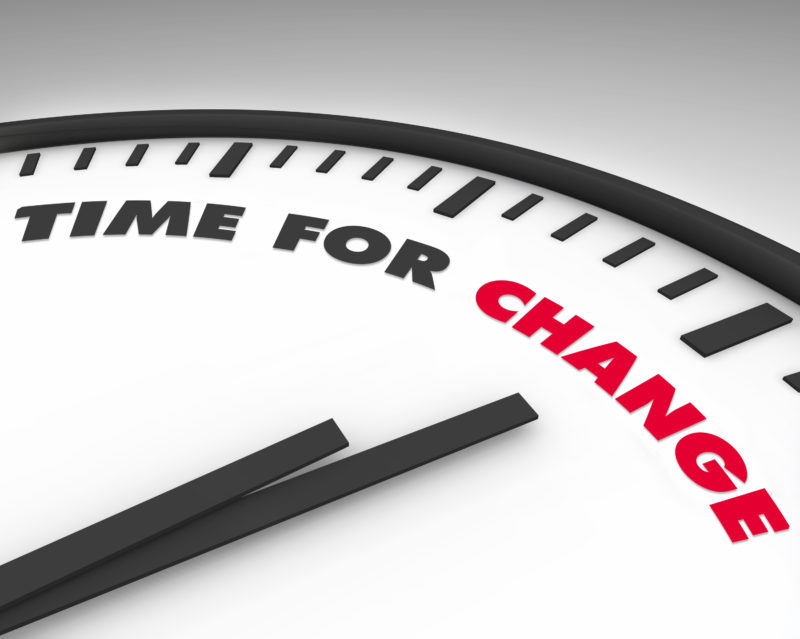THINK-BEHAVE-LEARN-IMPROVE: A Change Management Solution
THINK-BEHAVE-LEARN-IMPROVE: A Change Management Solution https://csuiteold.c-suitenetwork.com/advisors/wp-content/themes/csadvisore/images/empty/thumbnail.jpg 150 150 Wally Hauck, PhD, CSP https://secure.gravatar.com/avatar/28df664fdb75c73f53e14c279cb0105d?s=96&d=mm&r=g
A leader’s ability to manage change will have a direct impact on employee engagement. Employee engagement is paramount for organizations that value customer experience. Employee engagement improves individual performance, organizational performance, and loyalty of employees and customers. Engaged employees are 20-28% more productive, are healthier (physically and psychologically), and are 87% less likely to leave. Engaged employees save management time and generate 84% higher operating margins. Engaged employees = Engaged Customers and Engaged customers increase revenue (75%) and profit (76%). (Buckingham, 1999)
How does this relate to change management? 76% of engaged employees have a favorable view of their organization’s change management efforts while only 33% of disengaged employees share the same opinion. With the constant frequency and pace of change today leader’s must improve their skills of managing change or risk damaging employee loyalty and productivity. (Inc., 2009)
Are your managers the traditional kind or and they facilitators of self-management and change? The current management model we have all been taught is about managers “driving” results and evaluating performance. This model is not fast enough to keep up with the frequency and pace of change occurring in the global economy. There is a need for instant adaptability and traditional managers, as smart as they may be, cannot respond or plan fast enough. The need to adapt to change is one of the dynamics creating a need for organizations to prepare for self-organizing teams and employees who can self-manage.
Some managers recognize the need to change now they are working hard to personally transform their thinking and their methods, but they need help. They need to THINK differently, BEHAVE differently, LEARN and then IMPROVE. Some organizations will be able to delay the transformation and others will need to change now or will suffer increased costs in turnover and low employee engagement. Those organizations who are unaware of the need and/or who ignore it may end up going the way of the Dodo bird at some point.
Think-Behave-Learn-Improve is a change-management model that optimizes trust, cooperation, engagement, while accelerating the implementation of a desired change.
THINK
THINK represents how a leader must think about people, problems, and change to optimize the desired outcomes. The idea that an organization can be self-organizing and self-managing is the hallmark of the THINK portion of the model. This replaces the less effective manager-dependent, command and control model we have all been taught.
BEHAVE
BEHAVE represents a set of behavior which leaders must follow if they are truly committed to maintaining trust and cooperation while encouraging employees to embrace the change. Which behaviors will encourage the embrace of change and which discourages it? This is an important question to answer and often leaders are unaware of how their behavior is impacting the embrace of change. Are your managers consistently behaving with integrity and respect? Are your managers helping employees to experiment to continuously improve customer experience (both internal and external)?
LEARN
LEARN represents how an organization can accumulate knowledge and how that knowledge can accelerate the embrace of the change. A lack of knowledge will almost certainly slow the employees’ embrace of change. By thinking in terms of self-organizing systems, behaving with integrity and respect, and by continuously experimenting to better serve customers, an organization will learn faster than the average. Faster learning creates a strategic advantage.
IMPROVE
IMPROVE means the results of the change make a positive difference. Unless the leaders embrace the most effective leadership THINKING theory, BEHAVE consistent with integrity and respect, LEARN from their behaviors, they will not be able to improve at a rate which will create a strategic advantage.
THINK-BEHAVE-LEARN-IMPROVE is an essential set of tools and methods which will enable leaders to adapt to change and be proactive with change as well. These tools are paramount with the frequency and pace of change in today’s economy. Is your organization embracing a change model that delivers knowledge faster than your competitors?
Buckingham, M. (1999). First Break All the Rules: What the World’s Greatest Managers Do Differently. Gallup Press.
Inc., R. M. (2009). Ready, Get Set,…Change: The Impact of Change on Workforce. Philadelphia PA: Right Management Inc.
Check out the interview on C-Suite Best Seller TV to learn more about how to stop leadership malpractice and replace the typical performance review: https://www.c-suitetv.com/video/best-seller-tv-wally-hauck-stop-the-leadership-malpractice/
Wally Hauck, PhD has a cure for the “deadly disease” known as the typical performance appraisal. Wally holds a doctorate in organizational leadership from Warren National University, a Master of Business Administration in finance from Iona College, and a bachelor’s degree in philosophy from the University of Pennsylvania. Wally is a Certified Speaking Professional or CSP. Wally has a passion for helping leaders let go of the old and embrace new thinking to improve leadership skills, employee engagement, and performance.
For more, read on: https://csuiteold.c-suitenetwork.com/advisors/advisor/wally-hauck/

